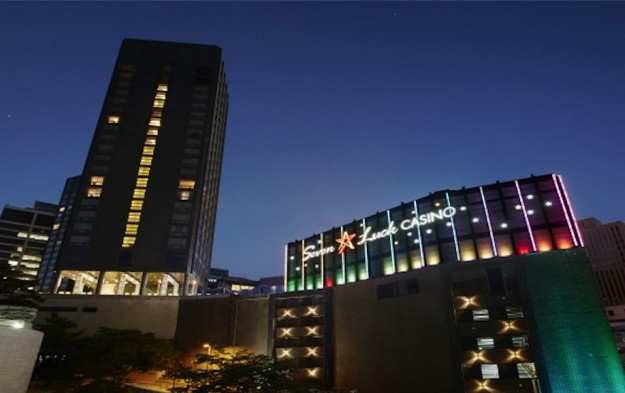S. Korean casino op GKL 4Q net income halved
Feb 09, 2018 Newsdesk Latest News, Rest of Asia, Top of the deck

South Korean casino operator Grand Korea Leisure Co Ltd (GKL) said its fourth quarter net income fell by 58.4 percent year-on-year to approximately KRW14.20 billion (US$13.0 million).
Aggregate revenue for the period declined by 14.1 percent compared to the prior-year period to KRW127.64 billion, the firm said in a filing to the Korea Exchange on Thursday.
GKL said its operating income in the fourth quarter of 2017 was KRW18.35 billion, down by 57.5 percent year-on-year.
The company didn’t give commentary on the quarterly results filed with the Korea Exchange.
The Thursday filing also showed that in the twelve months to December 31, GKL recorded aggregate revenue of nearly KRW501.30 billion, 8.6 percent lower than that in the prior-year period. The company saw its full year net profit decline 29.6 percent year-on-year, to approximately KRW80.54 billion.
GKL recommended, following its fourth-quarter results, a final dividend of KRW600 per share for the year ended December 31, 2017. But the company did not specify when the dividend will be paid. The total dividend for full-year 2017 amounts to approximately KRW37.11 billion, the company said in a separate filing to the Korea Exchange.
GKL is a subsidiary of the Korea Tourism Organization, which in turn is affiliated to South Korea’s Ministry of Culture, Sports and Tourism. The casino operating entity runs three foreigner-only casinos in South Korea under the Seven Luck brand: two in the capital Seoul and one in the southern port city of Busan.
Investment analysts have suggested that results of foreigner-only casinos in South Korea have suffered from a reported ban by Chinese authorities on tour groups going to the country. Chinese gamblers are reportedly an important customer segment for foreigner-only casinos in South Korea.
According to South Korean media, China had imposed a ban on South Korea-bound group tours as of the autumn of 2016, in retaliation for South Korea’s decision to install the U.S.-supplied Terminal High Altitude Area Defense (THAAD) anti-missile system close to Chinese territory as a counter to North Korean missile tests. China has never acknowledged the existence of such a ban.
While there were reports suggesting that the purported ban was partially lifted at the end of November 2017, but in the following month there were new media reports stating that the ban was back in place.
Related articles
-
 Mohegan Inspire mass table drop tripled...
Mohegan Inspire mass table drop tripled...Oct 23, 2024
-
 Paradise Co warns of phishing scams via...
Paradise Co warns of phishing scams via...Oct 21, 2024
More news
-
 Casino op Donaco fiscal year 1Q EBITDA...
Casino op Donaco fiscal year 1Q EBITDA...Oct 25, 2024
-
 Nomura expects GEN Singapore to post...
Nomura expects GEN Singapore to post...Oct 25, 2024
Latest News
Oct 25, 2024
Donaco International Ltd, an operator of a border casino in Cambodia and a border casino in Vietnam, says it had a “stable” revenue performance during the three months to September 30, the...Sign up to our FREE Newsletter
 (Click here for more)
(Click here for more)
Pick of the Day
”As we think about Sands China, we’re very hopeful that it will be a dividend payer in the upcoming year”
Patrick Dumont
President and chief operating officer of Las Vegas Sands
Most Popular
 Added disruption in 4Q amid Londoner rejig: Sands China October 24, 2024
Added disruption in 4Q amid Londoner rejig: Sands China October 24, 2024  MGM China’s ‘Macau 2049’ show to debut Dec 15 October 25, 2024
MGM China’s ‘Macau 2049’ show to debut Dec 15 October 25, 2024  Nomura expects GEN Singapore to post better results for 2H October 25, 2024
Nomura expects GEN Singapore to post better results for 2H October 25, 2024  LVS flags US$8bln investment in Marina Bay Sands IR2 October 24, 2024
LVS flags US$8bln investment in Marina Bay Sands IR2 October 24, 2024  45pct of Mega Fortris US$23mln IPO for biz in Macau October 24, 2024
45pct of Mega Fortris US$23mln IPO for biz in Macau October 24, 2024








